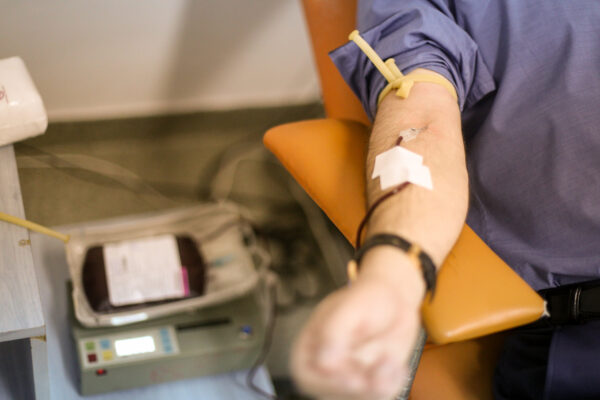
Among the various treatments proposed for Covid-19, one of the most closely watched consists of plasma donated by patients who have survived the disease, which is rich in antibodies against the SARS-CoV-2 virus. But according to a news report, the Food and Drug Administration stopped short of issuing an emergency use authorization for the treatment last week due to what top federal health officials regarded as insufficiently convincing data.
Citing two unnamed senior Trump administration officials, The New York Times reported Wednesday that a group of federal health officials that included National Institutes of Health Director Dr. Francis Collins and National Institute of Allergy and Infectious Diseases Director Dr. Anthony Fauci intervened in the decision, arguing that the data were too weak. As such, the EUA is now on hold as they are reviewed.

With the Rise of AI, What IP Disputes in Healthcare Are Likely to Emerge?
Munck Wilson Mandala Partner Greg Howison shared his perspective on some of the legal ramifications around AI, IP, connected devices and the data they generate, in response to emailed questions.
The data in question came from a Mayo Clinic-sponsored study posted on a preprint server, meaning that it has not been peer-reviewed. The study is an open-label, expanded-access program that included 35,322 patients, most of them critically ill, with more than half in the intensive care unit and more than one-quarter on mechanical ventilation when they received their transfusions. The data showed that at seven days, mortality among those receiving convalescent plasma within three days of diagnosis was 8.7%, while it was 11.9% among those who received it four or more days after diagnosis. Patients who received plasma with higher levels of antibodies showed a seven-day mortality rate of 8.9%, compared with 11.6% among those who received plasma with lower levels. Both figures reached statistical significance, according to the paper. The authors concluded that the efficacy signal from earlier infusion with plasma containing higher levels of antibodies could inform Covid-19 treatment and the design of randomized clinical trials.
The Times article quoted another official as emphasizing the need for robust data from randomized, controlled trials, while the draft of the EUA relied on not only the Mayo Clinic program but also information from other disease outbreaks and preclinical research.
In his press conference Wednesday, Trump criticized the decision, alleging it was politically motivated in connection with the November presidential election and claiming, without evidence, that it had successfully treated “way over 50%” of patients.
It’s not the first time Trump has sought to insert himself into questions of medical science since the Covid-19 pandemic began. He previously touted hydroxychloroquine as a “game changer” in the disease despite randomized, controlled trials to date showing that it was ineffective. Allies of Trump have also promoted oleandrin, an extract of the toxic Nerium oleander plant that likewise remains unproven in Covid-19, with Trump saying “we’ll look at it” in remarks at a press conference Monday.
Photo: CatEyePerspective, Getty Images














